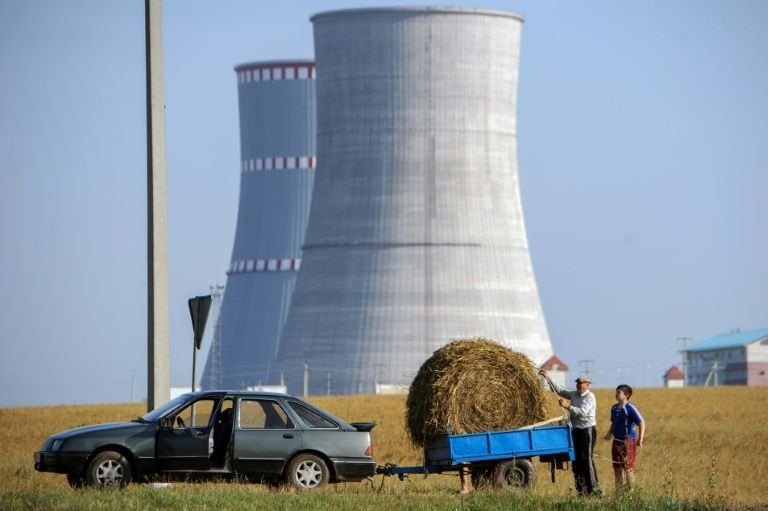Thirty years after the Chernobyl disaster that ruined a large part of it territory, Belarus has constructed its first nuclear power station. It was built and financed by Russia, under the concerned but powerless eye of neighbouring Lithuania.
In North-West Belorussia, fifteen kilometres from the Lithuanian border, work on the Ostrovets centre is in its final phase: the two reactors, with a capacity of 1,200 megawatts each, will be started up in 2019 and 2020 respectively.
The project, which was approved by the government in 2008 and is being managed by the Russian nuclear group Rosatom, represents an 11 billion dollar investment. 10 billion of that is Russian credit.
The project has revived bad memories in the country. A quarter of the territory was irradiated by the 1986 explosion inside a reactor at the Soviet Chernobyl power station, in the current Ukraine.
To alleviate concerns about nuclear security – even higher since the Fukushima disaster in 2011 – authorities and the Russian constructor have been sending reassuring messages. To demonstrate their intransigence, Belorussian authorities have made Rosatom change a tank that was damaged during a fall, even though the company claimed only the paint was damaged. The Russian conglomerate says these third generation reactors are among the “most modern in the world” and “respect all international norms”.
The Russian sociologist Elena Martichtchenkova, who has been polling public opinion since 2005, says around half the Belorussian population supports the development of nuclear energy today.
On the other side of the nearby Lithuanian border, this optimism is far from shared. Vilnius has criticised a project that “violates international requirements on nuclear and environmental security 20km from the EU border and only 40km from the Lithuanian capital”. The constructor has always denied these accusations.
When it was announced in 2011, the project was above all a way for Vladamir Putin to move his economic pawns into the ex-USSR and help the Belorussian President Alexander Loukachenko. At the time, Belorussia was dealing with a serious economic crisis and sanctions from the West for oppressing opponents.
As the situation is now better after European sanctions were recently lifted (after opponents were released), Minsk presents the project as a way to reduce dependence on Russian gas, which produces Belorussian electricity.
The new power station, which will meet more than a quarter of Belorussia’s energy needs, will let Minsk reduce imports of Russian gas by a quarter as well as the price of electricity.
(Source: Belga)

